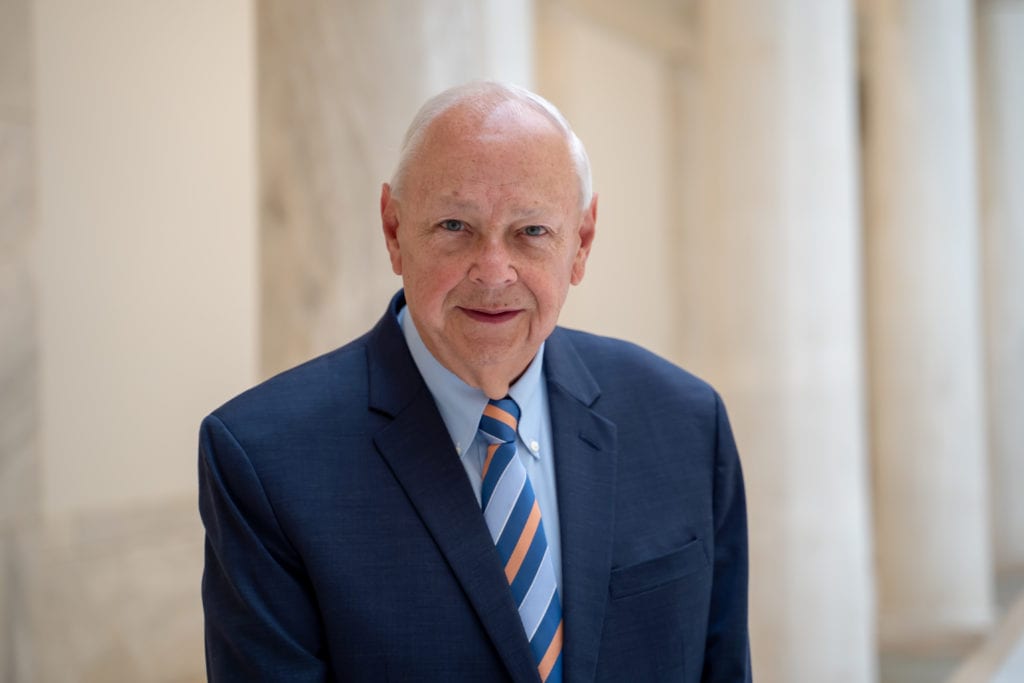
The City of Pittsburgh will issue a proclamation honoring Dr. Richard W. Moriarty, creator of the Mr. Yuk poison warning symbol, on Dr. Moriarty’s 80th birthday, Tuesday, October 1, 2019. The ceremony will take place at 10:00 am at the City Council Chambers in the Pittsburgh City-County Building.
Dr. Moriarty, a Lawrenceville native and graduate of the University of Pittsburgh School of Medicine, founded the Pittsburgh Poison Center—nationally known for the development of the Mr. Yuk poison warning symbol—in 1971 and the National Poison Center Network in 1973. Both organizations supported and fostered the development of poison centers on a national level.
“I am honored to be recognized by the city I love on my birthday,” said Dr. Moriarty. “I never imagined Mr. Yuk would take off like he did. I’m proud to know that my colleagues and I have helped so many children and families over the years.”
The Mr. Yuk symbol was introduced in 1972 as a public poison prevention education program. Focus groups indicated children were actually drawn to the traditional skull-and-crossbones poison symbol, perhaps due to pop culture popularity of pirates and the success of the 1970s Pittsburgh baseball team. The most effective poison avoidance symbol shown to the focus groups was a “sick face” with a fluorescent green background, which one child called “yukky.” Mr. Yuk was born.
In addition to creating Mr. Yuk, Dr. Moriarty overhauled the Pittsburgh Poison Center to include full-time nurses trained in emergency medicine to manage telephone calls on a daily 24-hour basis. He implemented state-of-the-art treatment protocols that managed toxic exposures, calmed panicked parents, and even prevented unnecessary trips to emergency rooms.
The success of Mr. Yuk and the Pittsburgh Poison Center garnered national attention, and the program and practice standards were adopted by more than 50 major poison control centers across the United States. UPMC Children’s Hospital still distributes the stickers today, and the symbol has enjoyed a lasting pop culture legacy.
“Warmest congratulations and happy birthday to my friend Richard,” said Dr. Eric Dorfman, the Daniel G. and Carole L. Kamin Director of Carnegie Museum of Natural History. “His support, wisdom, and collaboration have been critical to our success as a museum. We proudly join the city of Pittsburgh in honoring its hometown hero.”
Dr. Richard Moriarty is a retired pediatrician and a former associate clinical professor of pediatrics at the University of Pittsburgh School of Medicine. For more than 40 years, Dr. Moriarty has been a vibrant member of Pittsburgh’s medical community. He has advanced knowledge in the fields of pediatrics and toxicology, contributing more than 20 journal articles with the fundamental goal of reducing childhood fatalities due to poisoning.
Dr. Moriarty has been involved with a number of professional organizations such as the American Academy of Pediatrics, Pennsylvania Chapter as the Chairperson of the Poison and Accident Prevention Committee, and Pittsburgh Toxicology Club. In addition to volunteering his talents for a significant number of civic, community, and governmental organizations, he has served as a reviewer for the Journal of Pediatrics and the Archives of Pediatric and Adolescent Medicine.
Currently, Dr. Moriarty is President of the Carnegie Discoverers, a volunteer group that supports Carnegie Museum of Natural History in promoting its cultural, scientific, and educational missions and in developing new audiences for the institution. He also supported the creation of the R.W. Moriarty Science Seminar Series, the museum’s free noon science lecture lineup.
